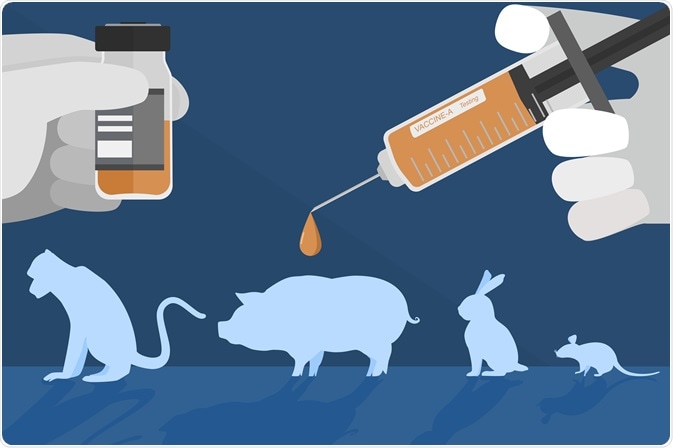Good Info To Picking Organic Pet Supplements
Wiki Article
What Are The Most Prevalent Ailments That Can Be A Problem For Animals?
Animals' medical issues can differ depending on the animal's species, age and overall health of the individual animal. Common conditions for animals include
Heart Disease- Heart disease, such as congestive failure may result in a decline in cardiac function in animals. This is especially the case for animals that are older. Endocrine Disorders- hormonal imbalances, like Cushing's disease or hypothyroidism can affect animals' overall health.
DiabetesThe disease Diabetes mellitus is a condition that can be found in pets and requires careful management, including insulin therapy and dietary changes.
Renal disease (kidney disease) is a common occurrence in dogs and cats of all ages. The condition could necessitate changes to diet or medical treatment.
Bladder or Urinary Tract Issues. Conditions like bladder stones, urinary tract infections and urinary insanity can cause problems for dogs.
Allergies: Animals can be allergic to food items, allergens in the environment and even contact allergies. This can result in digestive and skin problems.
Behavior Problems - Behavior issues such as anxiety, aggression and phobias can negatively affect pets' health and wellbeing. They may require the intervention of a vet.
Injuries and WoundsThe result of fights, accidents, or falls can result in fractures, wounds, or soft tissue injuries that require medical attention.It's crucial to remember that early detection and prevention is crucial to maintaining the well-being and health of animals. A balanced diet, regular veterinarian visits, vaccinations parasite prevention, and regular checks can help to prevent frequent medical problems. In addition, immediate medical attention is required if an animal displays signs of illness or discomfort. Find the top pet allergy relief supplements for website examples.

What Are The Most Effective Supplements, Probiotics And Supplements For Dogs To Provide Them?
The selection of probiotics, vitamins, and other supplements for dogs must be based on your dog's specific needs as well as any recommendations from your veterinarian. It's vital to give your dog a nutritious and balanced diet. But, certain breeds will be benefited by supplements. Here are a few supplements that can be beneficial to dogs.
Antioxidants. Vitamin C and E are antioxidants that can help to protect the cells of your dog from damage caused by oxidation and improve their immune system. Calcium and Vitamin D are essential for strong teeth and bones particularly for puppies and large breeds.
Fiber Supplements for Dogs with digestive issues like diarrhea or constipation Soluble fiber supplements can help regulate bowel movements.
Green-Lipped Mullet Extract supplement has an abundance of omega-3 fatty acids. It can help improve mobility and decrease swelling of joints in dogs suffering from arthritis.
Coenzyme Q10 CoQ10 is an antioxidant that can help aid in heart health as well as energy production in cells.
Milk Thistle. This herb supports liver health in dogs, specifically those suffering from liver diseases or taking medications that affect liver function.
Make sure to consult your veterinarian before giving your dog supplements. They will be able to provide advice specifically tailored to the needs of your dog. The dosage may differ based on the dog's size, age, and overall health. Excessive supplementation is dangerous. It is crucial to select supplements made by reputable producers. If you notice any unusual signs or reactions, consult your veterinarian immediately. A well-balanced and veterinarian-recommended diet is typically the best way to meet your dog's nutritional needs, and supplements should only be used when necessary and under professional guidance. Check out the best pet herbal supplements for cats with performance issues for website recommendations.

How Prevalent Is Kidney Failure, Skin Allergies And Yeast Infections In Dogs? What Are The Treatments Available?
Dogs may suffer from skin allergies, kidney problems, or yeast infections. The frequency of these conditions is based on factors such as breed, age and general health. This article will provide an overview of each disease as well as its severity and solutions.
Skin Allergies: Prevalence. Skin allergies affect an important portion of dog populations. Allergies can arise from a variety of triggers, including food, environmental factors (such as dust or pollen mites) as well as contact allergies.
Symptoms can include itching or redness on the skin. Other symptoms could include the loss of hair, ear infections, or hot spots.
Treatment- The management of skin allergies usually involves identifying and limiting exposure to allergens. Antihistamines are commonly prescribed, as well hypoallergenic foods and corticosteroids or medicines like the cyclosporine. For a long-term solution allergy shots and allergy testing can be considered.
Although these diseases are quite common for dogs, they do not necessarily affect every dog. Furthermore, the severity of these conditions can differ according to breed and. Regular veterinary examinations, a well-balanced diet and preventative measures (such as proper hygiene and flea control) can all help to reduce these risks. If you suspect that your pet is suffering from some medical condition, like yeast infections, skin allergies or kidney issues, it's essential to consult with a vet for an accurate diagnosis and tailored treatment plan. Early intervention could lead to more positive outcomes and a better quality of life for your dog. The very best of the finest pet herbal supplements for service dogs for site tips.
